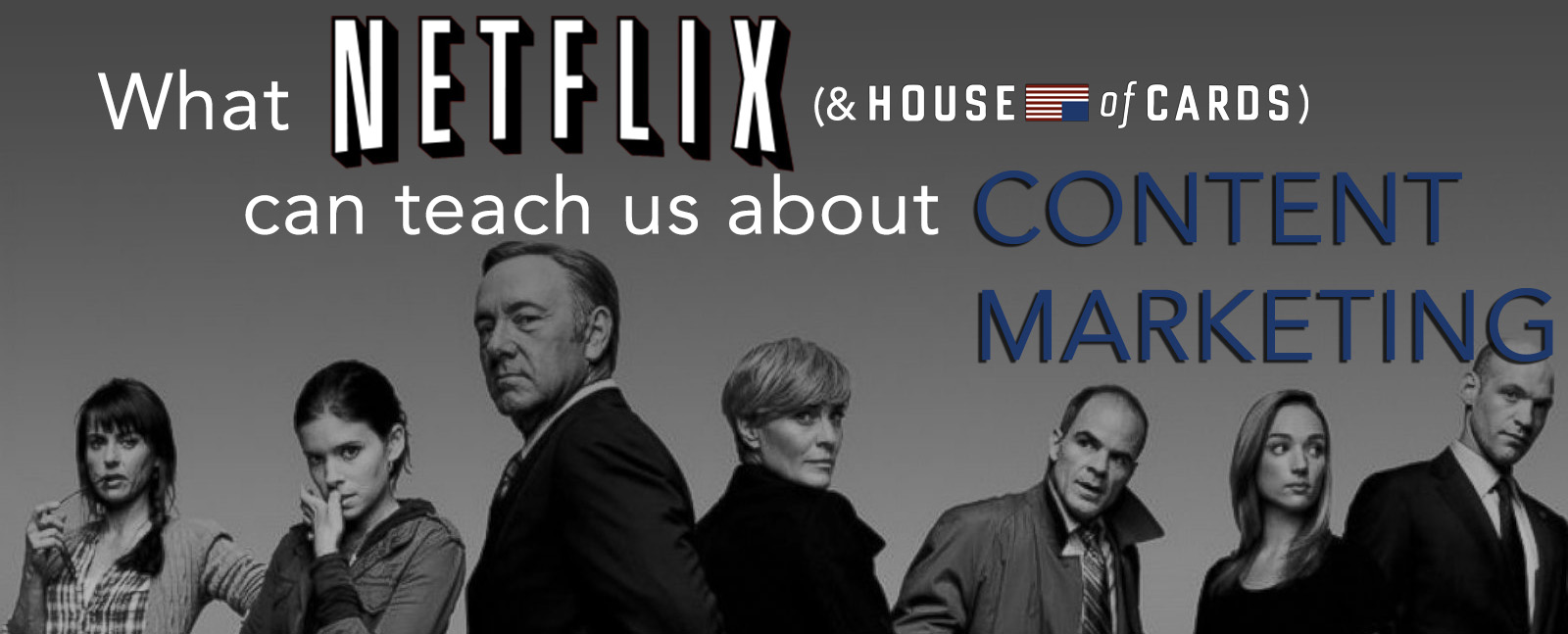Netflix: What House of Cards Can Teach Us about Content Marketing

When I moved into my first “grown-up” place, all I could afford was a humble one-bedroom apartment that scarcely fit my furniture, me and my dog. I didn’t care. I was so excited and proud of myself for being on my own. What I definitely couldn’t afford, though, was cable. A set of bunny ears and three decent channels got me through until a nifty little company called Netflix burst onto the scene.
As I’m sure you know, Netflix has long-since moved from solely mailing DVDs and Blu-rays to customers to streaming shows, movies and more via the World Wide Web. They also have a handful of competitors who offer the same services, so the question for Netflix lately has been how to get ahead of the curve.
The obvious answer to this dilemma would be to expand their library so that members have access to even more of their favorite shows. But Netflix took a different approach. They used all of the research available to them about viewers and their preferences and sank millions of dollars into creating their own unique content: an original show called House of Cards.

So, how does this relate to content marketing? Well, Netflix is a prime example that quality content isn’t going anywhere anytime soon. It was a risky move to front so much money on a project that wasn’t guaranteed to succeed, but as with most things in life, you get what you pay for—and now Netflix is reaping the benefits.
Four lessons we can learn from Netflix and House of Cards:
1) Content really is king
There is no substitute for quality content, especially in this day and age (Google is only getting smarter at weeding out the phonies). People want to relate to your brand and its story, so give them what they want! Netflix provided viewers with an interesting, engaging show and high-quality acting, both important aspects of their kind of content marketing, and their efforts were applauded.
2) Understanding the customer is your cornerstone
In addition to creating a quality offering for their clientele, Netflix simultaneously made the entire series available to buyers right off the bat. As in every episode of the whole season could be streamed upon purchase. This allowed viewers to pick and choose when and how much of the series they wanted to watch at any given time. This decision was strategic: Netflix took the time to research what would make the customer happiest, and then they made it happen.
3) If at first you don’t succeed, try again
Netflix has made its fair share of not-so-awesome decisions (anyone remember Qwikster?), only to rise back to the top with House of Cards. A misstep does not mean all is lost. Content saved Netflix, and it can do the same for you.
4) Word-of-mouth is still important
Although a good SEO strategy is imperative, the success of your company also depends on positive reviews from real people. When you provide quality content and customer satisfaction, good things will come.
So now the question is, is your company providing that same quality content to your audience?
Caralee Culpepper – Writer and Message Board Specialist



